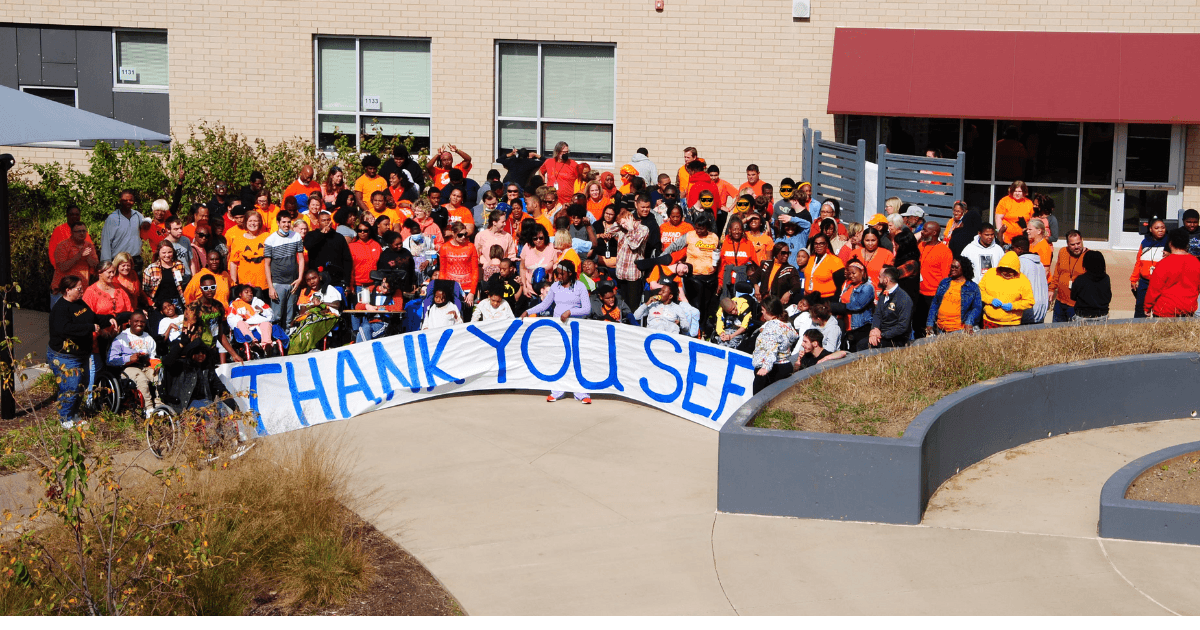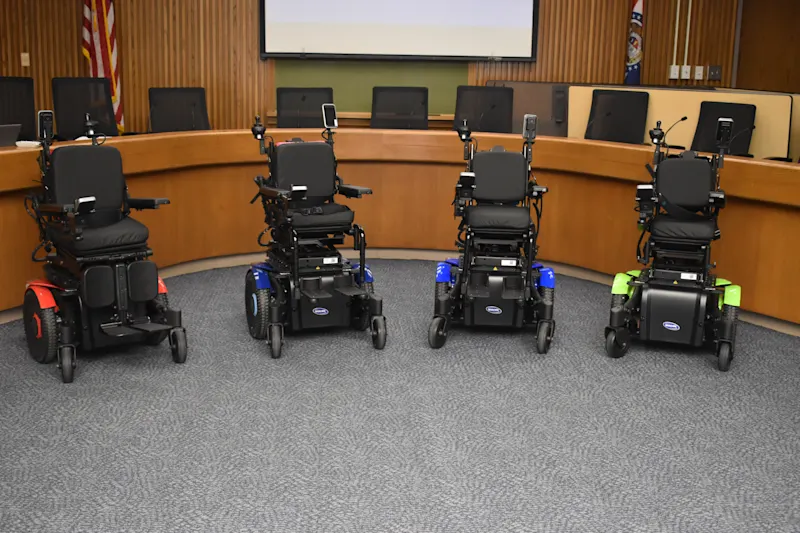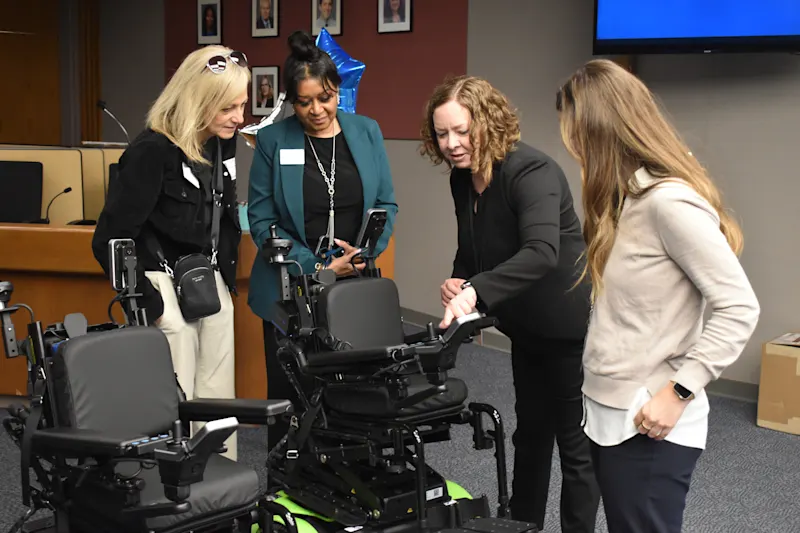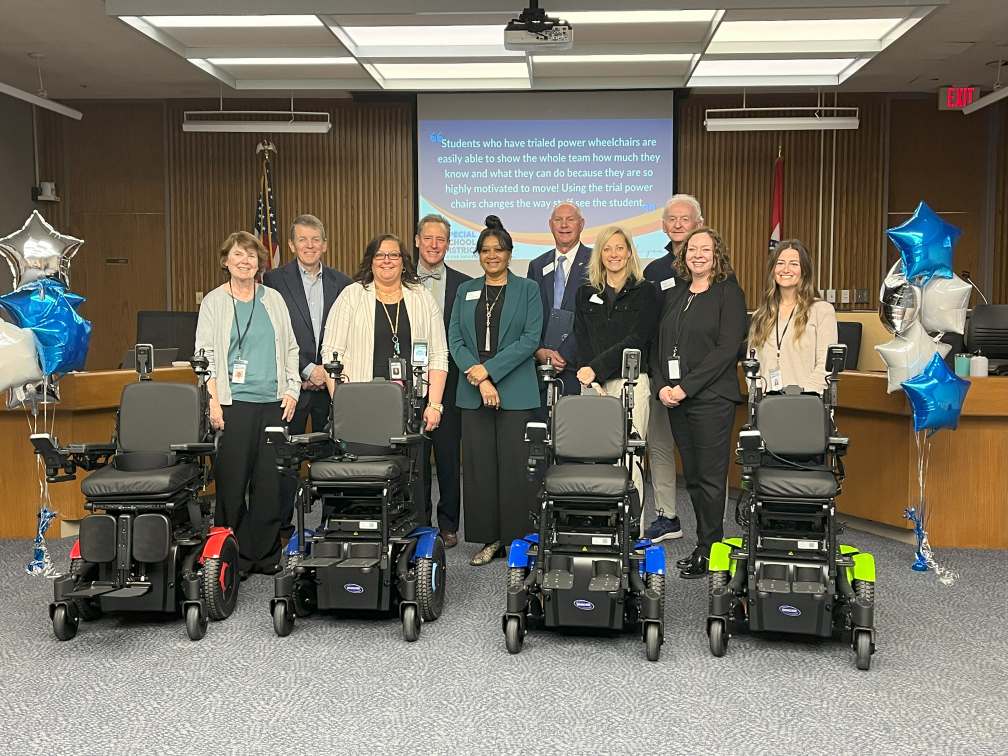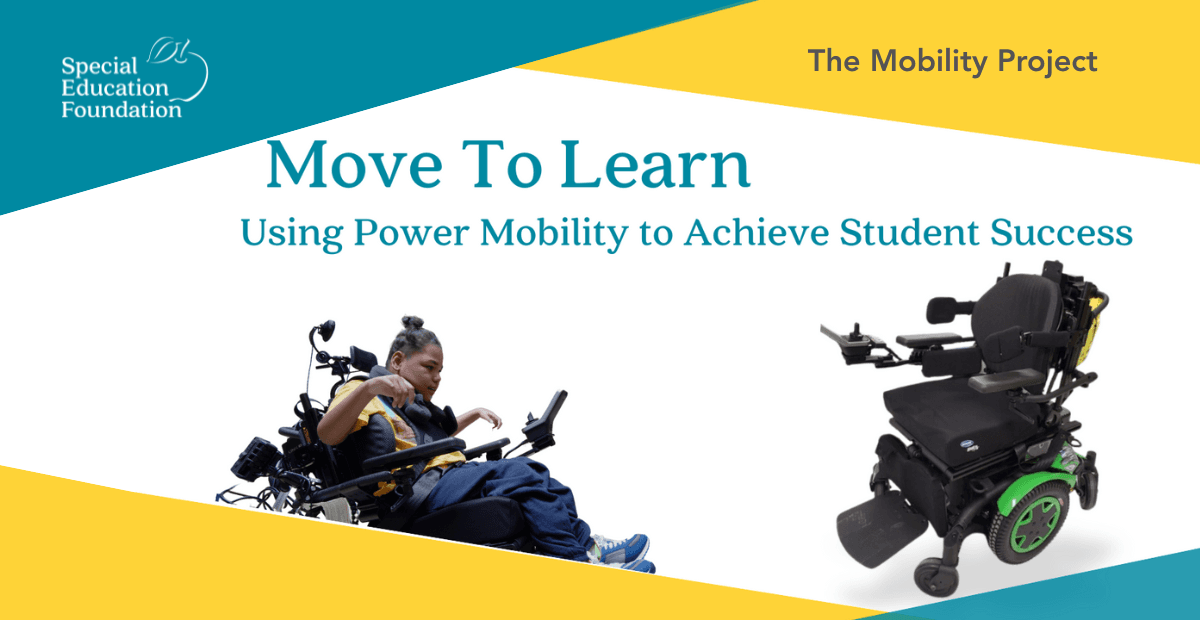
Two years ago, the Special School District’s Assistive Technology staff came to the Special Education Foundation with an idea.
They shared a vision that would empower students with complex mobility needs to experience independent movement, a vision that SEF would title The Mobility Project. The project’s goal was not just to provide access to the chairs, but to foster a sense of independence in the students who need it most.
A few weeks ago, at the SSD Central Office, that vision became reality thanks to a partnership between SEF, SSD, and Invacare, a leader in manufacturing and distributing innovative home and long-term care medical products that promote recovery and active lifestyles.
Thanks to funds raised at SEF’s annual Dan McLaughlin Charity Golf Tournament and Auction, four new power wheelchairs were delivered to the Special School District for students in SSD schools and the 22 partner districts.
“Many of our students who use power wheelchairs have multiple impairments,” said Teri Toler, an effective physical therapy practice specialist with SSD. “The Mobility Project gives them the chance to move on their own, maybe for the first time. It’s the beginning opportunity to explore mobility and independence.”
The four chairs allow SSD’s Assistive Tech and OT/PT departments to increase the number of trials they conduct annually significantly. Trials typically consist of a student using the chair for eight weeks while documenting developments in communication, academics, and social skills throughout the process.
“The purpose is to provide experience and exposure,” said Nikki Brentlinger, assistive technology director. “We’d love to partner with families if they are considering purchasing one. They can also share data from the trial period with outside agencies with whom they may be working. It’s a partnership we want to make to ensure that we are able to participate with the students fully and give families the information they need.”
Before a student receives a power wheelchair, it is customized to fit their size and preferred driving method. This process involves a detailed assessment of the student's physical needs and capabilities, followed by the selection and adjustment of the appropriate chair components.
Most power chairs, like the Invacare TDX SP2, are equipped with interchangeable backs and seats to accommodate children of various ages and sizes.
This customization ensures that the chair provides optimal support and comfort, which can help with seating, positioning, and transfers.
Some students can drive the chair on their own using a joystick or head array, which is a drive control for the head, or by using other switch options that can be mounted on the chair. The chair can also be set at various speeds and includes caregiver controls to ensure safety while learning.
“At one particular school, we had a student who used her head to drive, and she was able to turn the chair and look at her mom when she called her name. She did it by herself, completely independent,” added Brentlinger. “This is something she wasn’t capable of doing before due to the seating system she had. But with the power wheelchair, she was able to turn herself and look at her mom eye to eye.”
Once a few remaining accessories for the chairs arrive in mid-April, the goal is to deliver them to students on the waitlist before the end of the school year. SEF will continue to seek funding to purchase additional chairs for the project. The average cost per power wheelchair is $36,000. “At one particular school, we had a student who used her head to drive, and she was able to turn the chair and look at her mom when she called her name. She did it by herself, completely independent,” added Brentlinger. “This is something she wasn’t capable of doing before due to the seating system she had. But with the power wheelchair, she was able to turn herself and look at her mom eye to eye.”
Once a few remaining accessories for the chairs arrive in mid-April, the goal is to deliver them to students on the waitlist before the end of the school year. SEF will continue to seek funding to purchase additional chairs for the project. The average cost per power wheelchair is $36,000.
Families in the SSD community interested in The Mobility Project can begin conversations with their student’s physical therapist.
Individuals, businesses, and foundations interested in supporting The Mobility Project should contact Tim Eby at the Special Education Foundation at (314) 394-7030.
Much of this story was initially posted on the SSD website.

